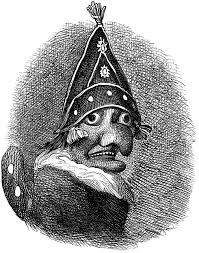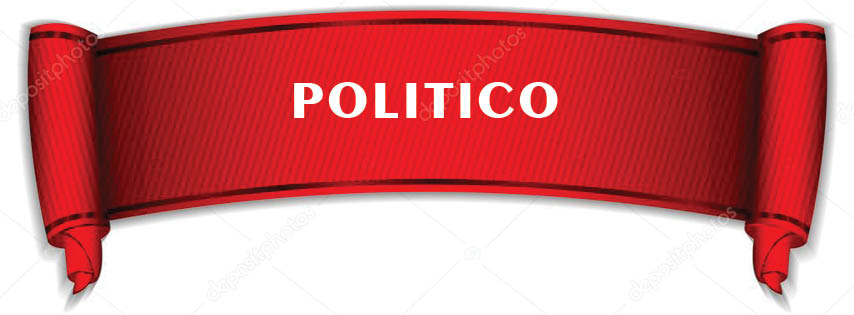
The Kurdish Haggle
The oldest city of the world offers a final word about 2022’s Food Crisis.
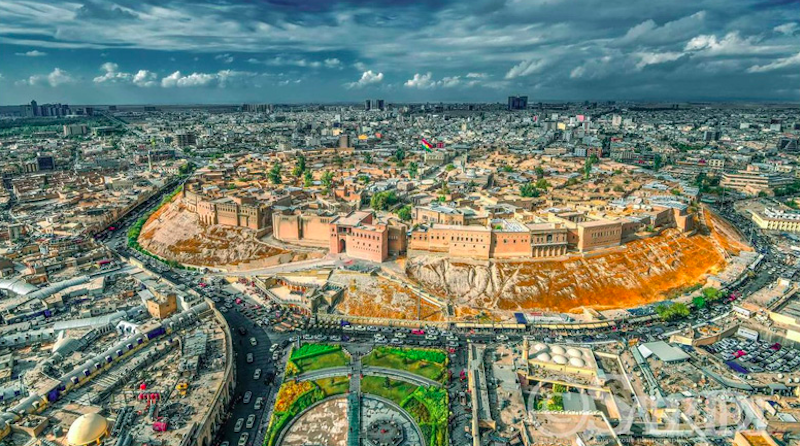
Citadel of Erbil
As a middle class suburbanite, I’m embarrassed to admit that I’ve just discovered the Whole Foods Market. Its focus on natural and organic products is ranked among the most socially responsible businesses in America. The smells are decidedly earthy as I stroll through aisles of produce each proud to declare precisely how and where they were grown. I remember riding shotgun in my dad’s Buick en route to his garden spot across town. Tending his tiny garden on weekends produced a modest harvest, and our collaboration with earth and sky was somehow calibrated into the soul of our family.
Human Beings are wanderers. Hunter-gatherers, to be exact, that only 6000 years ago began to settle down along the Tigris-Euphrates River when they figured out how to stop scavenging and start growing their own food. Arbil, for instance, the oldest continuously inhabited city in the world, is today the Capitol of a geo-cultural region called Kurdistan. But when I looked to the very cradle of civilization for clues about sustainability, I learned they’d become entirely dependent on foreign aid for food. A mere shadow of their former self, I wondered why the same people who’d taught the world how to build a city would forfeit their ability to sustain it? In the wake of the global economic turndown, I looked for insights from the Fmr. Agriculture Minister of the Kurdistan Regional Government, Dr. Jamal Fuad.
Dr. Fuad is a quasi-retired, vibrant and quintessential example of a Kurd. In fact, Kurdistan is the only government in the world that actually permeates the geographical boarders of four different nations: Iran, Iraq, Syria and Turkey. Imagine if Canada controlled America’s plains or Mexico the Gulf Region. How would “America” look or feel if asked to share her land? But as the son of a government official, young Jamal Fuad traversed in and out of such regions continually before in 1949 being chosen as one of only five to study abroad in the United States. After matriculating through college, graduate programs and even earning a PhD, Mr. Fuad then embarked on a career in both the private and public sectors with international corporations such as World Bank, The Food and Agriculture Organization, and ultimately a cabinet position as the Minister of Agriculture with the Kurdistan Regional Government.
“The Iran-Iraq War, genocide campaigns, and chemical bombardment by Saddam Hussein,” Dr. Fuad began, “depleted our countryside and displaced millions of people from their villages.” In the attempt to demilitarize Saddam, Iraq’s population was disproportionally impacted by economic embargoes, and by the 1990’s the country was desperate for food. The United Nations program, Oil-for-Food, was created in 1995 and allowed Iraq to sell oil on the world market in exchange for food and medicine. “Initially, Oil-for-Food saved many lives,” Dr. Fuad says, which today has culminated in nearly 60% of Iraq’s 26 million people now solely dependent on the program. “But once the immediate crisis was averted, the policies were not redacted in order to rebuild the domestic agricultural infrastructure. The government was too dependent on the oil. Money was spent to import products that could have been grown and sold in local markets. People did not return to the countryside, and the ethos of independent farming continues to be traded for impoverished and dependent city dwelling.”
Having lived in both the East and the Western Hemispheres, Dr. Fuad understands that a coherent, enduring economy is built upon a vibrant ecosystem. The Farm-to-Table mentality implies that farmer, grocer and consumer each live in cooperation with the land. Dr. Fuad continues. “The lack of a proper budget needed to train and educate a new generation of farmers, provide the necessary tools and equipment to sustain a farm, and to replenish water resources during the May-November dry season, has been replaced by policies of excessive foreign aid." Finally, Dr. Fuad cites internal corruption within the Food-for-Oil program as the predominant cause of the present dire agricultural circumstance. "Kickbacks, mismanagement of funds, fraud and ongoing claims of abuse rendered the ill-conceived plan completely ineffective. And the most significant victims of its failure are the people it was intended to help." Reestablishing an ecosystem in Kurdistan requires not only a financial investment and policy initiative, but a resurgence of the very spirit that ignited the Neolithic Revolution in the first place: Innovation.
The topography of the Kurdistan region might look dry and barren to the naked eye, but the soil of her mountains is as rich today as it was some 6000 years ago. And those who’ve been rendered incapable by either malice or ignorance still carry the heritage of a people who converted walnuts, melons and wheat into the world’s first and most enduring capitol city. Refusing to give into the barriers created by war, bad policies and corruption, Dr. Fuad and his American wife Cathy continue to set perhaps the most stirring example of their careers by running a “small kitchen garden” in their retirement. Still passionate at 86, Dr. Fuad says “Its a peaceful and quiet living.”
Peace and quiet. That’s not something Modern Family gets much of these days. But I'll try to remember next time I find myself at the local drive-thru with the kids, the corner restaurant with friends, or even the fancy Whole Foods where I can be seen doing my bit for the environment, to always keep an eye out for that corner vegetable stand. Because at the heart of civilization lies this one, fundamental competency from which there is no escape. All other aspects of society are built upon and around our ability to grow, harvest and surplus clean and wholesome food. The Kurdish Sultan, Saladin, once wrote: Contentment is the absence of want. Modern Translation: Never negotiate with your lunch money.
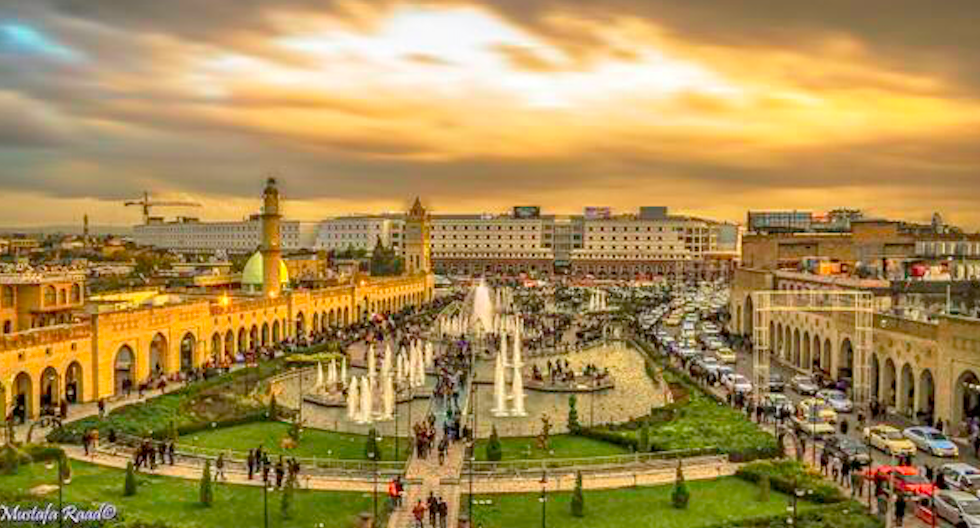
Citadel of Erbil
“The Iran-Iraq War, genocide campaigns, and chemical bombardment by Saddam Hussein ravaged our farmlands,” Fuad began, “displacing millions of people from their villages and creating food insecurity.” Iraq’s population was disproportionally impacted by economic embargoes, and by the 1990’s the region was experiencing a food crisis.”
The United Nations bypassed the embargos in 1995 by creating the Oil-for-Food Program; enabling Iraq to freely trade oil for food and medicine on the world market. “Initially,” Fuad continues, “Oil-for-Food saved many lives, but today nearly 60% of Iraq’s 41 million people are solely dependent on the program."
Once the immediate crisis was averted, the policies were not redacted in order to rebuild the domestic agricultural infrastructure. Fuad continues. "Money was spent to import products that could and should have been grown and sold in local markets. People did not return to the countryside, and the ethos of independent farming continues to be traded for impoverished and dependent city dwelling.”
Having lived in both the east and the western hemispheres, Dr. Fuad understands that a coherent, enduring economy is built upon a vibrant ecosystem. The Farm-to-Table mentality implies that farmer, grocer and consumer each live in cooperation with the land. “The lack of a proper budget needed to train and educate a new generation of farmers, provide the necessary tools and equipment to sustain a farm, and to replenish water resources during the May-November dry season has been replaced by policies of excessive foreign aid."
Finally, Fuad cites internal corruption within the Food-for-Oil program as the predominant cause of the present dire agricultural circumstance. "Kickbacks, mismanagement of funds, fraud and ongoing claims of abuse rendered the ill-conceived plan completely ineffective. And the most significant victims of its failure are the very people it was intended to help."
Reestablishing an ecosystem in Kurdistan requires not only a financial investment and policy initiative, but a resurgence of the very spirit that ignited the Neolithic Revolution in the first place: Innovation.
Bread of Life
The global population has reached 8 billion, highlighting massive growth and raising concerns about food scarcity and prices around the world. The 2022 Russian invasion of Ukraine has triggered embargoes; upended supply chains; and created the largest migrant crisis since WWII. The G7 and Australia have agreed to a $60 per barrel price cap effective tomorrow, but the people of Erbil — the first to grow walnuts, melons and wheat into the world’s first and most enduring capitol city — know something more of war.
Every night, around 828 million people go to bed hungry, according to the United Nations World Food Program. The world produces enough food annually, around 4 billion tons, enough to feed everyone. Yet around one-third of all food made — approximately 1.3 billion tons of fruit, vegetables, dairy and meat — goes to waste, according to the United Nations' Food and Agriculture Organization. "There are people in this world so hungry," Mahatma Gandhi said, "God appears to them in the form of bread."
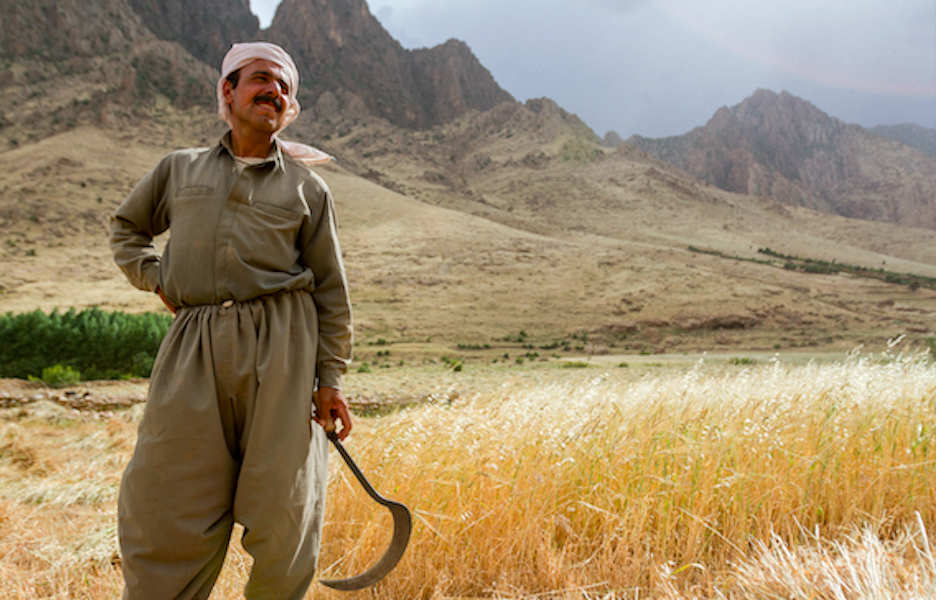
Dr. Fuad 2015
Refusing to give into the barriers created by war, bad policies, and corruption, Dr. Fuad and his American wife Cathy continue to set perhaps the most stirring examples of their careers by running a small kitchen garden in their retirement. Still passionate at 86, Dr. Fuad says, “Its a peaceful and quiet living.”
There have been roughly 239 years of scattered peace in the last 6000 years and war and food security are synonymous. The Pax Romana (28 B.C. – 211 A.D.) roughly coincides with the life of Jesus of Nazareth and while civilizations are built by a competency to grow, surplus, harvest and sell clean and wholesome food, enduring communities know one thing more. Never negotiate with your lunch money because sometimes it's just better to give than to receive.


